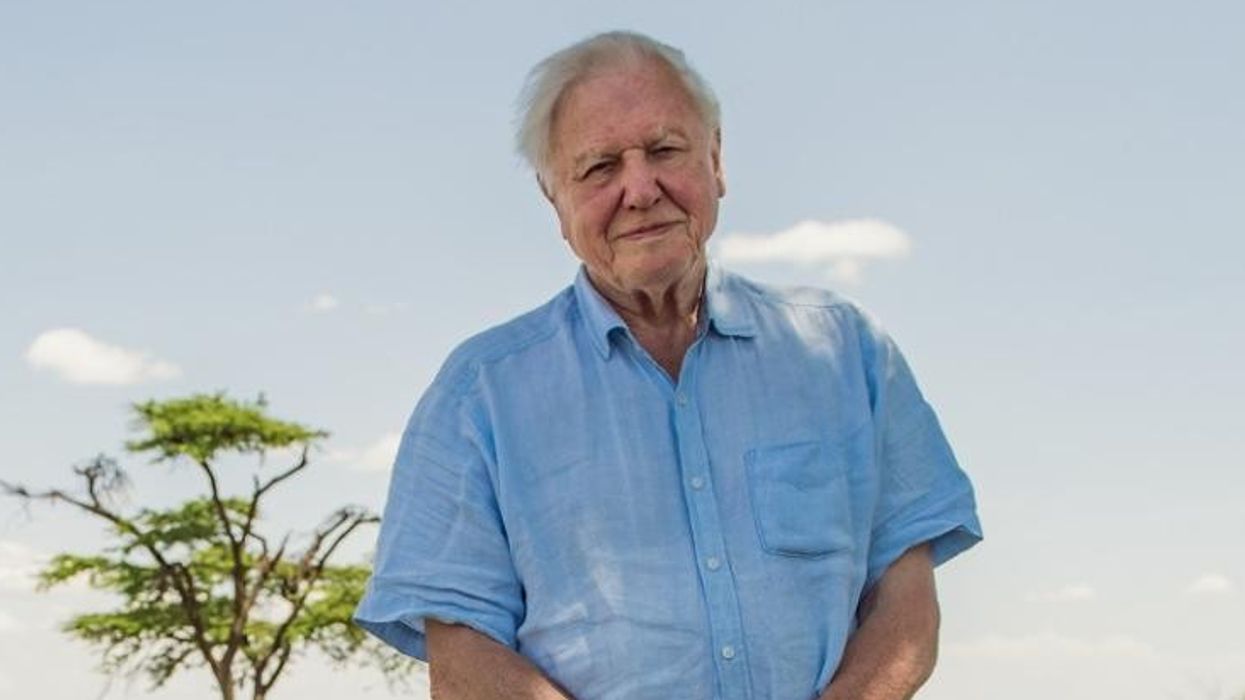Sir David Attenborough is marking his 99th birthday with the release of Ocean, a new feature documentary in which the veteran naturalist speaks more strongly than ever before against the environmental destruction caused by industrial fishing.
The film, which opens in UK cinemas on 8 May, focuses heavily on bottom trawling, a method Attenborough describes as "draining the life from our oceans". In a particularly stark moment, he states that the scars left by these vessels on the seabed are so extensive that “the trails of destruction can be seen from space”.
Attenborough, who has long been recognised for his measured tone, goes further in Ocean than in any previous project. He condemns what he calls “modern day colonialism at sea”, where large trawlers, often from wealthier nations, operate off the coasts of countries that depend on fish for both food and employment, contributing to the collapse of local fisheries.
The documentary asserts that industrial fishing has wiped out “two-thirds of all large predator fish”. In Antarctica, it warns that trawlers may be “removing the foundation of an entire ecosystem”. Creatures that survived the extinction event that wiped out the dinosaurs—such as sharks and sea turtles—are now under threat from human activity, as industrial vessels continue to fish aggressively in nearly every corner of the world’s oceans.
Keith Scholey, one of the film’s three directors and co-founder of Silverback Films, has collaborated with Attenborough for more than four decades. He notes that Attenborough has taken a bolder stance than ever before. “He’s come to a new place,” said Scholey. “He knows how much the public trusts him and how careful he has to be. He does want to bring about this change.”
The film features unprecedented footage of bottom trawling, including a scallop dredger operating off Britain’s south coast and another vessel working in Turkish waters. Scenes show huge metal beams dragging across the seabed, stirring up carbon-rich sediment and annihilating marine habitats, with fish and sea creatures leaping in vain to escape the advancing machinery.
“The idea of bulldozing a rainforest causes outrage, yet we do the same underwater every day,” Attenborough says in the film. “Surely you would argue it must be illegal.”
Attenborough has occasionally faced criticism for not taking stronger positions on environmental issues, particularly the climate crisis. He has previously explained that while constant doom-laden warnings risk alienating audiences, his role has always been to tell “gripping and truthful” stories about the natural world rather than to campaign outright.
Scholey believes that this approach has helped maintain Attenborough’s credibility and reach. “What David has succeeded at doing is remaining trusted by everyone, so that when he plays his cards, he can affect things in a huge way,” he said.
As he nears a century of life, Attenborough uses Ocean to underline a crucial message: the health of the planet depends on the oceans, which cover more than 70% of the Earth’s surface. “I now understand that the most important place on Earth is not on land but at sea,” he says. “We are at a crossroads, with humanity draining the life from the ocean.”
The release of the film comes ahead of the United Nations Ocean Conference in Nice this June. The documentary aims to raise awareness of the urgent need for marine protection and press for real action on existing commitments. Under current international goals, UN member states have pledged to protect 30% of the world’s oceans from destructive activities by 2030 as part of broader efforts to combat biodiversity loss. Attenborough’s film suggests that this goal requires far greater enforcement and political will.
Scholey compares the rise of industrial fishing to the commercial whaling boom of the 20th century, which drove several whale species to the brink of extinction. It was only after the International Whaling Commission agreed to a global moratorium in 1982 that whale populations began to recover. Attenborough draws on this precedent to argue that reversing environmental damage is possible: “Success is possible,” he says, as a blue whale glides past his vessel. “I’ve seen it on a global scale once before.”
The film also showcases positive examples of marine recovery where destructive fishing has been banned. These include protected areas off the Isle of Arran in Scotland and within the Papahānaumokuākea Marine National Monument in Hawaii. In these regions, biodiversity has begun to flourish again, with fish populations rebounding and marine ecosystems restoring themselves at a pace that scientists describe as remarkable.
Toby Nowlan, one of the film’s other directors and its producer, describes Ocean as “a story of hope and recovery” despite the urgency of its warnings. “There is an element of wake-up call,” he said, “but really it’s a story of what can be achieved when we give the ocean a chance.”
Ocean will be available to stream on Hulu and Disney+ later this year, following its cinema release.





